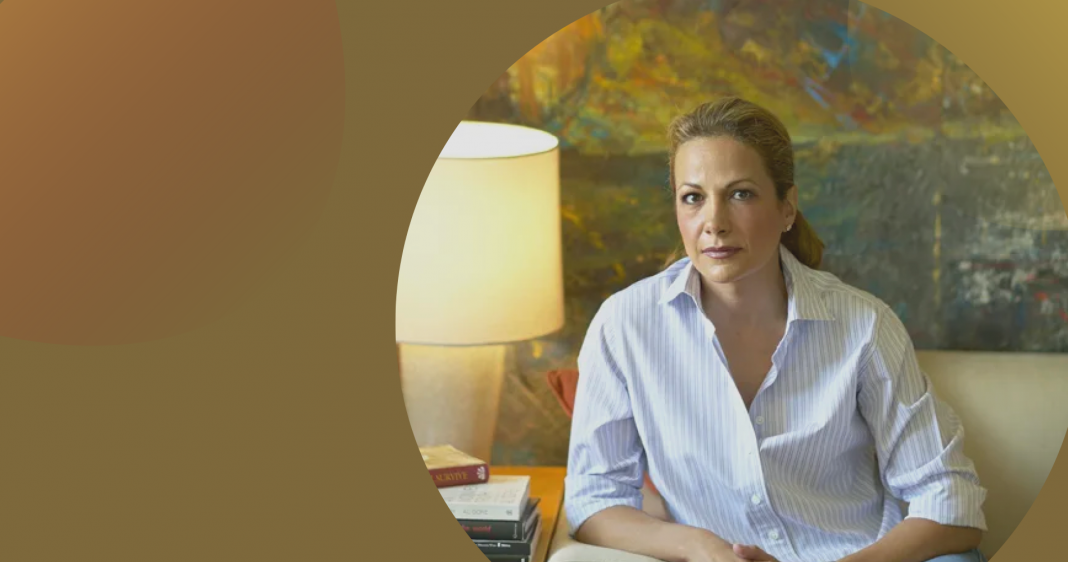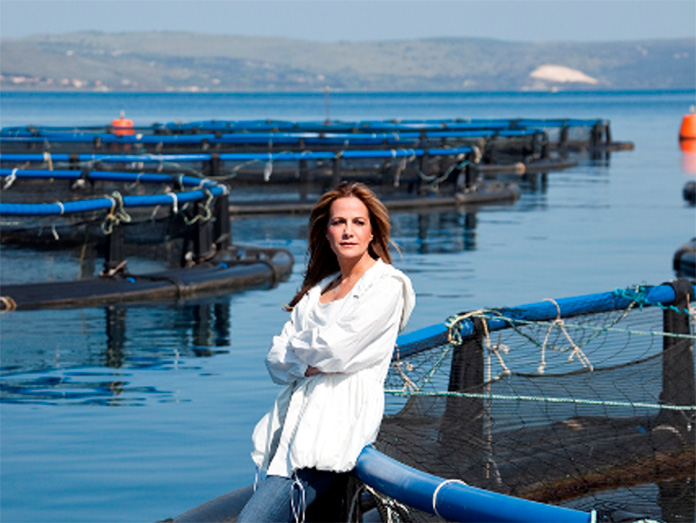The new President of the Federation of European Aquaculture Producers examines the present and future of aquaculture while setting a course towards further sustainability and growth.
Exclusive interview: Vana Antonopoulou
Lara Barazi-Geroulanou is one of the few women active in the dynamic aquaculture sector. As CEO of Kefalonia Fisheries, Member of the Hellenic Aquaculture Producers Organization’s (HAPO) Board of Directors and, since a few months ago, as the new President of the Federation of European Aquaculture Producers (FEAP), she is determined to set her own terms and help transform policies as well as opinions regarding one of the most active and profitable industries in the global economy.
You are the new President of the Federation of European Aquaculture Producers (FEAP). How do you intend to influence the European —and Greek— aquaculture sector?
The FEAP is the united voice of the European aquaculture production industry. In other words, it is the Federation uniting and representing the National aquaculture associations in Europe that represent professional fish farming. The organization’s mission is to:
• Pursue and improve its coordination role of the goals of its National member associations and the aquaculture profession;
• Assure a pro-active position in front of all relevant authorities and interests;
• Provide accurate information and sound rationale to policy and decision makers;
• Guarantee the communication of accurate and unbiased information on aquaculture processes and products to the consumer;
• Guarantee valid, consensual and timely responses to key issues;
• Develop the structure and operations required for the representation of a dynamic and visible sector at European and global levels.
Amongst the FEAP’s most important activities is its advisory role in providing positions, documentation and data on European aquaculture issues to the European Commission and the European Parliament as well as other aquaculture stakeholder organizations –at both the European and global levels. This means that the FEAP plays a key role in representing and promoting the industry’s positions which it helps generate and coordinate. My goal is to further build a technocratic and responsive hub for both our members as well as decision-makers and to promote the development of the aquaculture sector in Europe.
“Our goal is to promote a competitive, sustainable EU industry in order to provide our consumers and citizens with the healthiest protein”
Sustainability is a high priority goal for many industries and countries around the globe. Where does FEAP stand and how will the aquaculture sector respond to the challenge, one of the greatest of our times?
In 2018 on the occasion of the FEAP’s 50th anniversary, the organization reviewed its contribution to the development of the sector and reflected on the way forward. In consultation with our Member organizations from 22 countries, our renewed mission statement is “To support and promote the sustainable development of European Aquaculture”. This is central to what we believe must be our priority going forward. In terms of the 3 most challenging scarce resources, water, land and energy, aquaculture is already the most efficient producer of animal protein as food. That is why the FEAP’s position is that aquaculture is part of the solution to meet the objectives in the Green Deal (greenhouse gas emissions, circular economy, biodiversity, and sustainable and resilient food systems) and agrees with the European Commission’s view that the Blue Economy forms an integral part of the European Green Deal.
In Greece, aquaculture is a dynamic industry and a key driver for growth. What are the challenges facing the sector due to the COVID-19 pandemic and how does FEAP intend to support it?
The COVID-19 pandemic has been very challenging to the aquaculture industry throughout the EU and of course in Greece with problems ranging from production disruption, logistics challenges and the closure of vital markets such as the HORECA market. The FEAP conducted a series of meetings with the European Commission in March of 2020 to form a response and support to the industry. The result was the EC proposal amending Regulation (EU) No 1379/2013 and Regulation (EU) No 508/2014 as regards specific measures to mitigate the impact of the COVID-19 outbreak in the fishery and aquaculture sector on April 2, which was subsequently passed by the European Parliament. At the EU level, the FEAP acted quickly and effectively to provide a support mechanism to industry. The application of these support measures are left to the discretion of the Member States and certainly the measures have been unevenly applied. Greece is unfortunately one of the countries which has not made use of the EMFF provisions for Covid support and I would certainly urge the Greek National authorities to support the industry.
What is your opinion on the increased competition from third, non-EU countries, and why, at the end of the day, should international buyers and consumers choose “fish from Greece”?
We fully support healthy competition: our goal is to promote a competitive, sustainable EU industry in order to provide our consumers and citizens with the healthiest protein. We are concerned however that EU production has come under pressure from third countries in the past decade as products are often imported which are not produced according to the same standards as EU seafood; This is especially concerning when it comes to regulations regarding the environment, animal welfare, the quality of raw materials and feeds and in some case labor laws.
In the EU we often have higher standards for our production than for our consumers; This makes it all the more important to communicate what “Made in the EU” means, that our seafood including “fish from Greece” is produced according to the most stringent standards for quality, sustainability and nutrition.
As far as aquaculture is concerned, is Greece a strong brand? Has the country built brand awareness and how can the Hellenic Aquaculture Producers Organization help?
The Hellenic Producers’ Organization is a very important initiative that is necessary in order to communicate the positive attributes of Greek aquaculture. I believe that Greece has a very strong brand which has evolved from the tourism industry, the extraordinary beauty of its nature, the high quality of its food and the increasing awareness of the benefits of the Mediterranean diet. That said, I think there is still a lot of work to be done in building brand awareness of the benefits of seafood and the sustainability of aquaculture in general and of course of Greek aquaculture in particular.
What are the problems plaguing Greek aquaculture? Do they hamper exports and how can we overcome them?
The main challenge for the Greek aquaculture industry is an unclear legislative and regulatory landscape. Aquaculture is by its very nature a medium to long term endeavor requiring large capital investment. Without a clear and stable regulatory environment especially as regards allocation of space/zoning it will be difficult for this sector to attract serious investors and grow. This has implications for investment in R&D as well as communications which are both essential for the sustainable development of the industry.




















